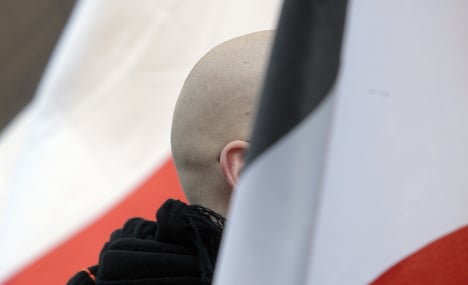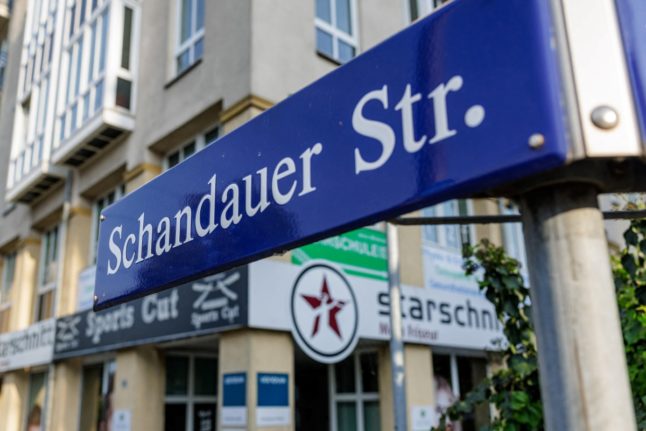The state Interior Ministry registered some 1,213 criminal offences for 2009, among then the desecration of Jewish memorials with severed pig heads and a hacker attack on the Buchenwald concentration camp website.
But the reported crimes are only a small fraction of what is a much larger problem in the state, said Yvonne Proß, a counsellor at the Thuringian Emergency Service for victims of violence caused by far-right extremism (THO).
“One can be certain that the number of unreported cases is somewhat higher.
Particularly when it comes to victims of violence,” she said.
In addition to physical violence, perpetrators have taken to following, threatening and intimidating their victims.
“Stalking the people without touching them, intimidation methods such as ‘home visits,’ or putting stickers near apartments – the effects of non-physical violence should not be underestimated,” Proß said.
In these cases, victims can’t prove that a crime has been committed, and many choose not to file police reports for fear of retribution or a bad experience with the authorities.
Filip Heinlein, who sits on the Sonneburg county council for the Green party, was brutally beaten one year ago by three neo-Nazis there, and said that authorities have become part of the problem by downplaying the significance of such attacks.
“Though the perpetrators called out ‘Sieg Heil’ and other anti-Semitic slogans, and some belong to the right-wing extremist group the Freie Kameradschaft in Sonneberg, the judge did not want to recognise what was really behind it,” Heinlein said of his case.
Neo-Nazi groups are taking advantage of this tendency to remain silent within communities, according to MOBIT, a Thuringia-based initiative against far-right activity.
“In recent years we’ve observed more far-right groups settling into club houses and procuring real estate,” MOBIT consultant Christian Rühl said. “Group meetings or neo-Nazi concerts are declared birthdays or private parties. That greatly impedes banning such gatherings.”
In these cases communities have little leverage to prevent such events, he said.
But the advocacy groups have made some progress in working against the trend on a community level, they said.
This year MOBIT will work together on a new initiative with both the Thuringia state sporting association and the football association, Rühl said.
“It is very welcome that the associations have recognised there is a problem,” he said. “For a long time it was simply ignored.”
State authorities also plan to begin a fiercely disputed programme against extremism this year, the Social Affairs Ministry said. Thuringia opposition politicians have criticised delays in implementing the scheme, in addition to demanding a stronger focus on right-wing extremism.
The state cabinet is expected to approve the initiative by December.
DAPD/ka



 Please whitelist us to continue reading.
Please whitelist us to continue reading.
Member comments